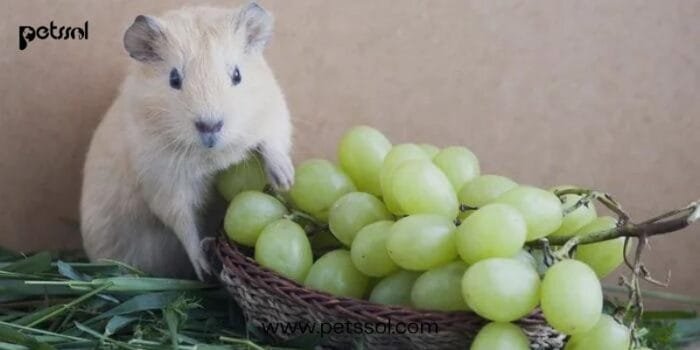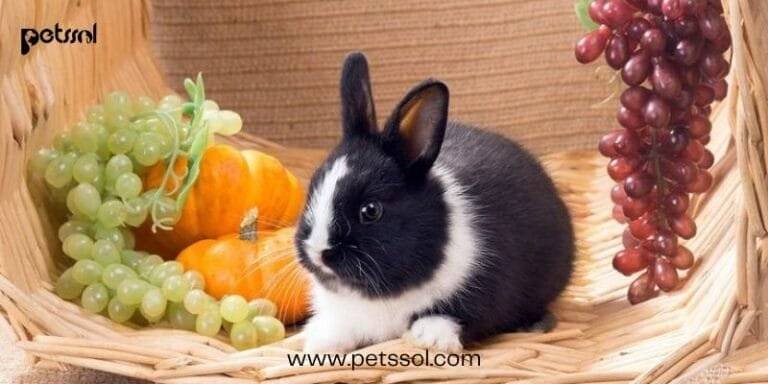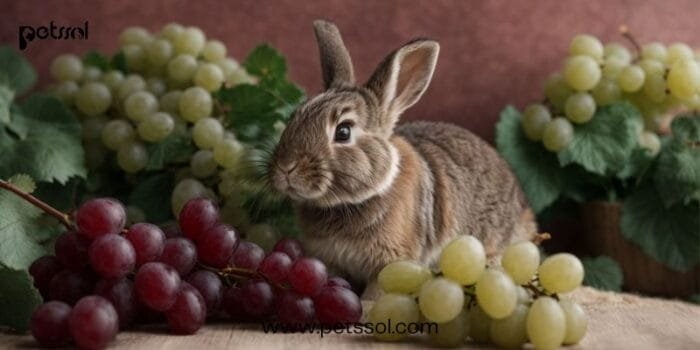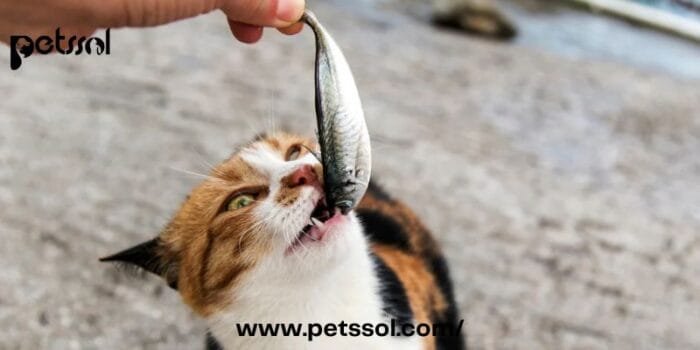Rabbits are delightful pets known for their gentle nature and inquisitive personalities. As a pet owner, ensuring your rabbit’s diet is nutritious and safe is a top priority. One question that often comes up is whether rabbits can eat grapes. In this comprehensive guide, we’ll explore the answer to this question, delving into the nutritional value of grapes, their benefits and risks, and how to safely incorporate them into your rabbit’s diet.
Table of Contents
ToggleCan Rabbits Eat Grapes? The Short Answer
Yes, rabbits can eat grapes, but they should only be given in moderation. While grapes are not toxic to rabbits, they are high in sugar, which can pose health risks if consumed in large amounts. Grapes can be an occasional treat, but they should not form a regular part of your rabbit’s diet.
Rabbit’s Diet
To fully grasp whether grapes are appropriate for rabbits, it’s important to understand what makes up a healthy rabbit diet. A rabbit’s diet should primarily consist of the following:
- Hay: The staple of a rabbit’s diet, hay provides essential fiber that aids in digestion and keeps their teeth healthy.
- Fresh Vegetables: Leafy greens, like romaine lettuce, kale, and cilantro, are great for providing necessary vitamins and minerals.
- Pellets: High-quality rabbit pellets can supplement their diet with balanced nutrition.
- Water: Fresh, clean water should always be available to your rabbit.
Fruits, including grapes, should be considered an occasional treat rather than a dietary staple. Overfeeding fruits can lead to an imbalance in your rabbit’s diet, potentially causing health problems.
Nutritional Value of Grapes for Rabbits
Grapes are rich in certain nutrients, but they also contain high amounts of sugar. Here’s a closer look at the nutritional content of grapes:
| Nutrient | Amount per 100g | Benefits to Rabbits |
| Calories | 69 kcal | Provides energy |
| Carbohydrates | 18.1 g | High sugar content; limit intake |
| Vitamin C | 4 mg | Supports immune health |
| Potassium | 191 mg | Helps in muscle function |
| Fiber | 0.9 g | Aids in digestion, but low |
| Water | 81.3 g | Hydration |
Grapes do contain some beneficial nutrients, such as Vitamin C and potassium, which are important for overall health. However, the low fiber content and high sugar levels mean that grapes should be offered sparingly.
Benefits of Feeding Grapes to Rabbits
While grapes are not essential to a rabbit’s diet, they can offer some benefits when given occasionally:
- Hydration
Grapes have a high water content, making them a hydrating treat for rabbits. This can be particularly beneficial in hot weather, helping to keep your rabbit hydrated.
- Antioxidants
Grapes are rich in antioxidants, which can help support your rabbit’s immune system and protect cells from damage caused by free radicals. This can contribute to overall health and longevity.
- Variety in Diet
Offering a small piece of grape as a treat can add variety to your rabbit’s diet, making meal times more exciting. Variety is important to prevent your rabbit from becoming bored with their food.
Potential Risks of Feeding Grapes to Rabbits
Despite the potential benefits, there are also risks associated with feeding grapes to rabbits:
- High Sugar Content
Grapes are high in sugar, which can lead to obesity, dental issues, and digestive problems if consumed in large quantities. Rabbits have a sensitive digestive system that is not designed to handle large amounts of sugar.
- Digestive Issues
Because rabbits are herbivores with a diet mainly composed of fiber-rich foods, too much sugar can cause digestive problems like diarrhea, bloating, and gas. These issues can be uncomfortable and even dangerous for rabbits.
- Choking Hazard
Grapes can be a choking hazard, especially for smaller rabbits. To mitigate this risk, always cut grapes into small pieces before feeding them to your rabbit.
- Risk of Overfeeding
Rabbits may become overly fond of grapes due to their sweetness, which can lead to overfeeding. This can result in an unbalanced diet and the aforementioned health issues.
How to Safely Feed Grapes to Your Rabbit
If you decide to include grapes in your rabbit’s diet, it’s important to do so safely. Here are some guidelines to follow:
- Wash Thoroughly
Before offering grapes to your rabbit, ensure they are thoroughly washed. This removes any pesticides, dirt, or chemicals that could be harmful to your pet.
- Cut into Small Pieces
Always cut grapes into small, manageable pieces to reduce the risk of choking. This is especially important for smaller rabbits or young bunnies.
- Offer in Moderation
Limit the number of grapes you give to your rabbit. One or two small pieces per week are sufficient. Moderation is crucial to prevent the negative health effects associated with too much sugar.
- Monitor Your Rabbit
After feeding grapes to your rabbit, observe them for any signs of digestive upset or allergic reactions. If your rabbit shows any signs of discomfort, stop feeding grapes and consult your veterinarian.

Other Healthy Treats for Rabbits
While grapes can be given as a treat, there are healthier alternatives that are better suited for regular feeding. Here are some options:
- Leafy Greens
Leafy greens like romaine lettuce, spinach, and kale are excellent for rabbits. They provide essential vitamins, minerals, and fiber, making them a perfect addition to your rabbit’s diet.
- Herbs
Herbs such as basil, parsley, and cilantro are not only nutritious but also add variety and flavor to your rabbit’s meals. They are low in sugar and high in beneficial nutrients.
- Vegetables
Vegetables like carrots, bell peppers, and zucchini are great options. They are lower in sugar than fruits and provide a range of vitamins and minerals.
- Hay-Based Treats
Hay-based treats are specifically designed for rabbits and are a great way to offer variety while ensuring they get the necessary fiber in their diet.
The Importance of Moderation
One of the key takeaways when feeding your rabbit grapes or any treat is moderation. While it might be tempting to give your rabbit treats frequently, it’s important to remember that their diet should be predominantly made up of hay and fresh vegetables. Treats should only make up a small portion of their diet.
Balancing Treats with a Healthy Diet
To maintain a healthy balance, ensure that treats like grapes are given sparingly. The majority of your rabbit’s diet should consist of high-fiber foods that support digestion and overall health. When introducing any new food, including grapes, do so gradually to avoid upsetting your rabbit’s stomach.
Common Mistakes to Avoid When Feeding Rabbits
When it comes to feeding your rabbit, there are a few common mistakes that pet owners should avoid:
- Overfeeding Fruits
It’s easy to overfeed fruits like grapes because rabbits tend to love their sweet taste. However, too much fruit can lead to serious health problems. Always keep fruit treats to a minimum.
- Neglecting Hay
Hay should be the foundation of your rabbit’s diet. It’s important not to substitute hay with treats or pellets, as this can lead to digestive issues and dental problems.
- Introducing New Foods Too Quickly
Rabbits have sensitive stomachs, and introducing new foods too quickly can cause digestive upset. Always introduce new treats gradually, and watch for any adverse reactions.
- Ignoring Portion Control
Even when feeding healthy treats, portion control is essential. Always keep an eye on the amount of food your rabbit is consuming to avoid overfeeding.
Promoting a Healthy Rabbit Diet
Maintaining a healthy diet for your rabbit involves more than just offering the right foods. It also requires a balanced approach to feeding, regular monitoring of your rabbit’s health, and being mindful of how different foods affect them.
- Providing Constant Access to Hay
Ensure your rabbit always has access to fresh, high-quality hay. This not only supports their digestive health but also helps to keep their teeth in good condition.
- Offering Fresh Water Daily
Fresh, clean water should be available at all times. Consider using a water bottle attached to the side of the cage to keep it clean and easily accessible.
- Monitoring Weight and Health
Regularly check your rabbit’s weight and overall health. If you notice any changes in their eating habits, weight, or behavior, consult your veterinarian.
- Limiting Treats
As discussed, treats like grapes should be limited. Too many treats can lead to obesity and other health issues. Stick to a schedule where treats are given only occasionally.
FAQs About Rabbits and Grapes
- How often can I feed grapes to my rabbit?
You should only feed grapes to your rabbit once or twice a week, and in very small quantities. Moderation is key to avoiding health issues.
- Can grapes cause diarrhea in rabbits?
Yes, if consumed in large quantities, the high sugar content in grapes can cause diarrhea or other digestive issues in rabbits.
- Are there any fruits that are better for rabbits than grapes?
Yes, fruits like strawberries, apples (without seeds), and blueberries are lower in sugar and can be offered more frequently.
- What should I do if my rabbit ate too many grapes?
If your rabbit has eaten too many grapes, monitor them closely for signs of digestive upset, such as diarrhea or lack of appetite. Contact your veterinarian if symptoms persist.
- Can baby rabbits eat grapes?
It’s best to avoid feeding grapes to baby rabbits as their digestive systems are more sensitive. Stick to hay and specially formulated pellets until they are older.
- Are grape seeds dangerous for rabbits?
Yes, grape seeds can be a choking hazard and should be removed before feeding grapes to your rabbit.
- How can I make sure my rabbit enjoys grapes safely?
Always introduce new foods slowly and in small amounts. Start with a tiny piece and observe your rabbit’s reaction before offering more.
Conclusion
Grapes can be a delightful treat for your rabbit when given sparingly. While they offer some nutritional benefits, the high sugar content means they should be an occasional indulgence rather than a regular snack. By following the guidelines outlined in this article, you can safely incorporate grapes into your rabbit’s diet without compromising their health.
Remember, a balanced diet is key to a happy and healthy rabbit. Make sure to prioritize hay, fresh vegetables, and high-quality pellets to meet your rabbit’s nutritional needs. Your rabbit’s diet should be tailored to their specific health requirements, and any changes should be made gradually to avoid digestive issues.
For more tips on keeping your rabbit healthy and happy, visit Petssol. We’re dedicated to providing the best care information for your pets, ensuring they live long, happy lives.









